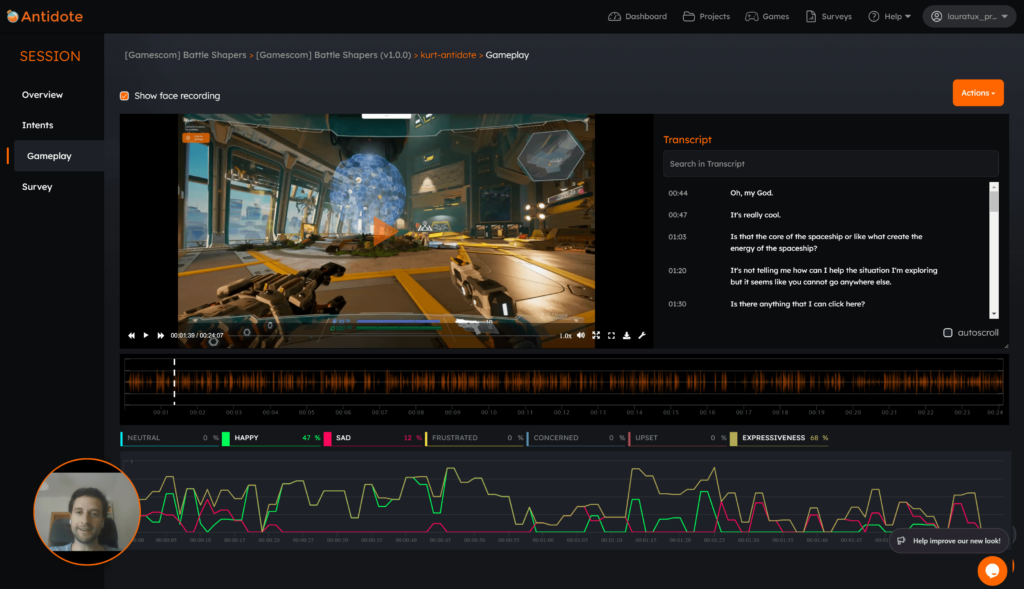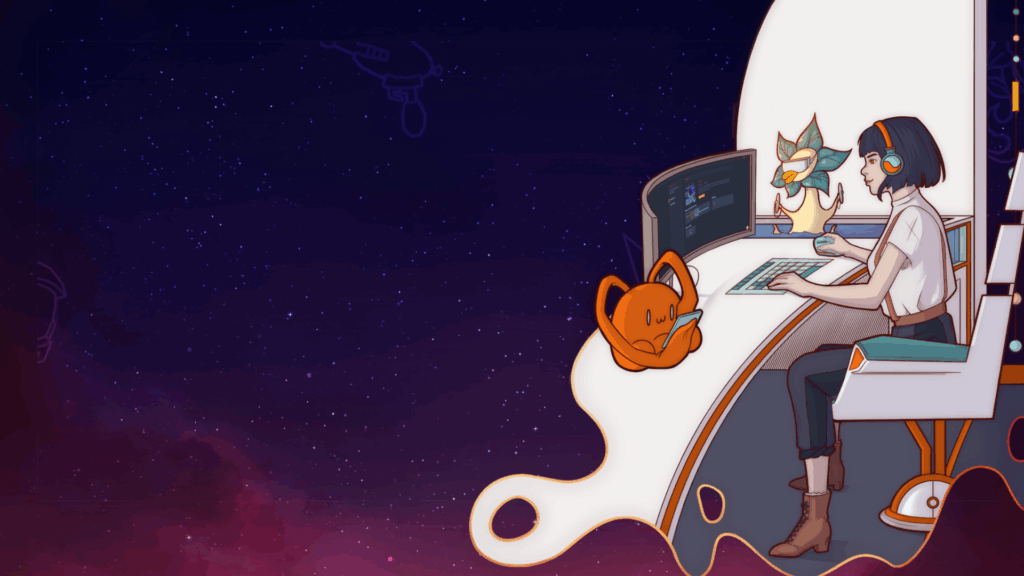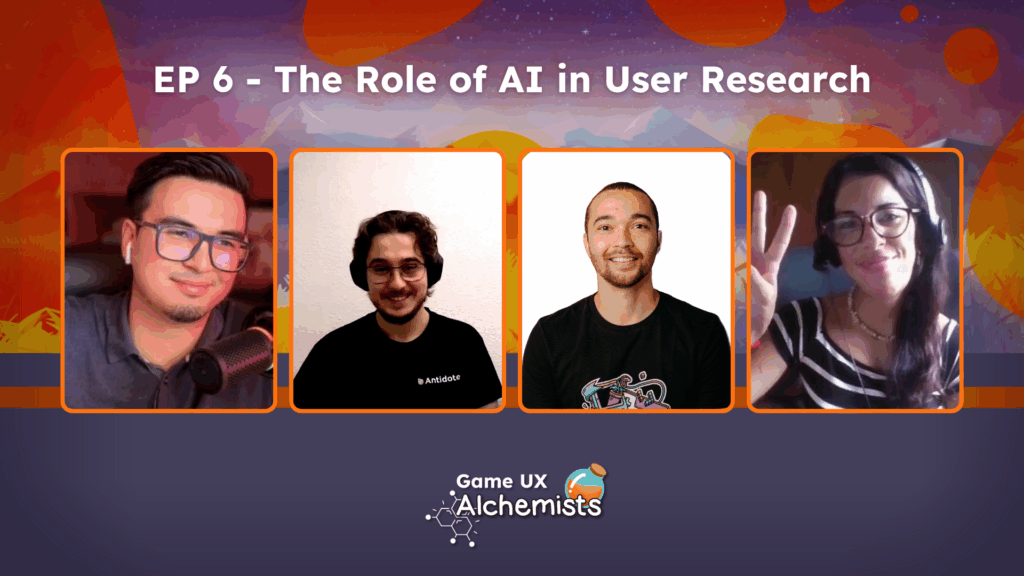The Company
League of Geeks, established in 2011, is an innovative game development studio based in Melbourne, Australia. The studio excels in creating strategy games with rich narratives and stunning art, earning critical acclaim for its unique approach to game design.
One of their flagship titles, Solium Infernum, immerses players in a battle for the throne of Hell, blending strategic gameplay with a rich, dark fantasy narrative.
Within the game, players take on the role of Archfiends, using diplomacy, deceit and military strategy to outmaneuver rivals and claim ultimate power.
League of Geeks is renowned for its mastery of intricate strategy mechanics and atmospheric design, creating experiences that are as deeply engaging and visually distinctive.
The Challenge
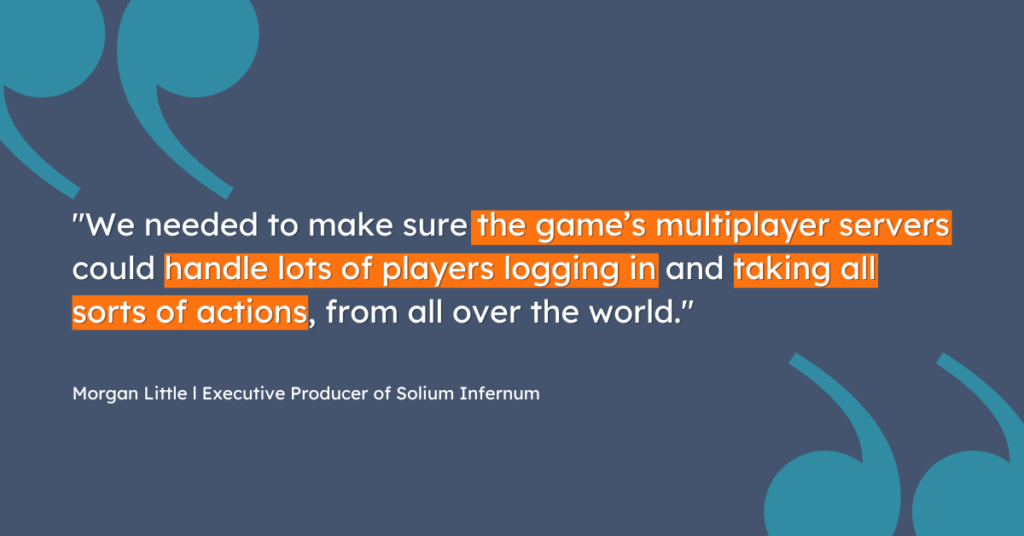
League of Geeks aimed for a seamless launch of the remastered version of their game, Solium Infernum. This project involved updating a beloved classic for both long-time fans and new players.
With the anticipated high interest, the studio faced a critical challenge:
Ensuring their servers could handle an influx of players from around the globe without any issues.
When asked about the mentioned challenge, Morgan Little, an Executive Producer of Solium Infernum, replied:
“As we neared the end of production for Solium Infernum, we had identified a key area of risk for launching the game.
We needed to make sure the game’s multiplayer servers could handle lots of players logging in and taking all sorts of actions from all over the world. We had done plenty of automated testing, but there’s nothing quite like having the real thing to see how your systems start to buckle under pressure.”
Evidently, the team’s most important objective was testing server stability and performance during peak times. They needed to observe real-world interactions to ensure their infrastructure could handle the load without any technical hindrance.
Expanding on that, we asked Morgan why the studio decided to seek external help with the project:
“We knew that this particular testing project was beyond our own internal capacity – not only are we a small team, but we’re all in Australia.
We needed to see how our servers stood up to players logging in from around the world, and to taking actions that we wouldn’t necessarily take ourselves.”
Morgan also mentioned the past collaboration between League of Geeks and Antidote:
“Some of our team have worked with Antidote on previous projects, and were happy to work with Antidote again on this project.”
Therefore, to tackle this challenge, League of Geeks partnered with Antidote to conduct a comprehensive stress test to examine the game’s server capabilities.
The Solution
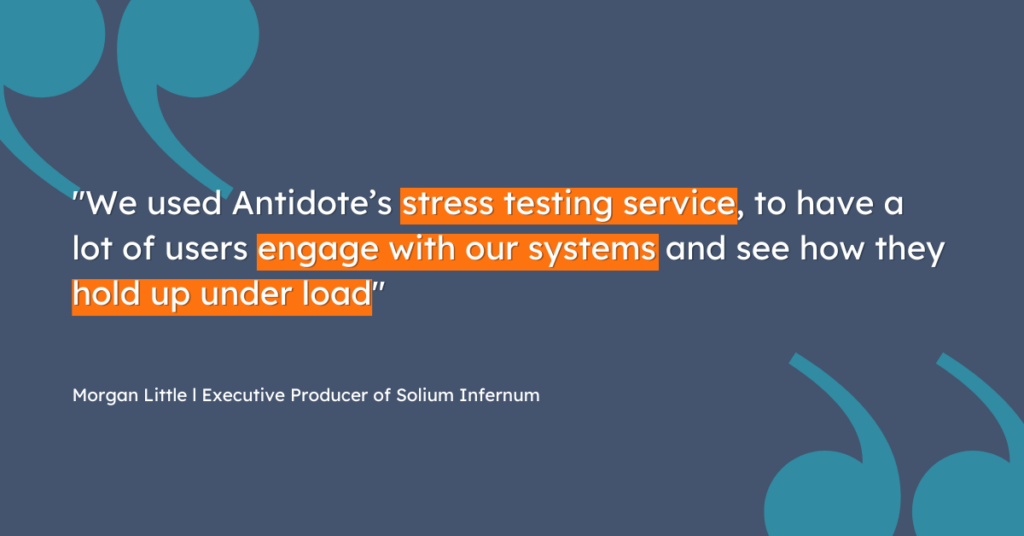
To achieve the research objective, League of Geeks conducted a stress test to scrutinize Solium Infernum’s server performance under pressure.
Stress testing with real players is a critical step, as it lets developers see how the game performs under real-world conditions when the project is live.
Antidote organized the entire research process, including player recruitment and playtest coordination.
Stage 1
The first step involved finding the right number of participants to join the stress test. Each player had to be able to playtest for 1 hour and meet the minimum PC specifications:
- Processor: Intel Core i5 10400
- Memory: 12 GB RAM
- Graphics: NVIDIA GeForce RTX 2060
Our team designed and curated the recruitment survey, finding the participants within our growing player community.
Stage 2
Additionally, we handled the coordination during the playtest day.
With League of Geeks’ help, Antidote’s UX team created an onboarding presentation that educated the playtesters about the game’s mechanics, design and navigation menu. The purpose was to offer the best gameplay experience and ensure the playtest protocol was well-defined.
During the playtest, our team moderated the session live through a dedicated Discord server for the project. This allowed us to address any immediate issues and ensure a smooth testing process for the participants.
The studio could monitor real-time results as the stress test unfolded, gaining immediate insights into the game’s performance under pressure.
Stage 3
Furthermore, we provided a top-line report soon after, detailing the playtest’s highs and lows.
Once the stress test was complete, players were provided with a post-session survey via the Antidote platform.
As a last step, Antidote distributed the rewards using our dedicated platform.
The Result
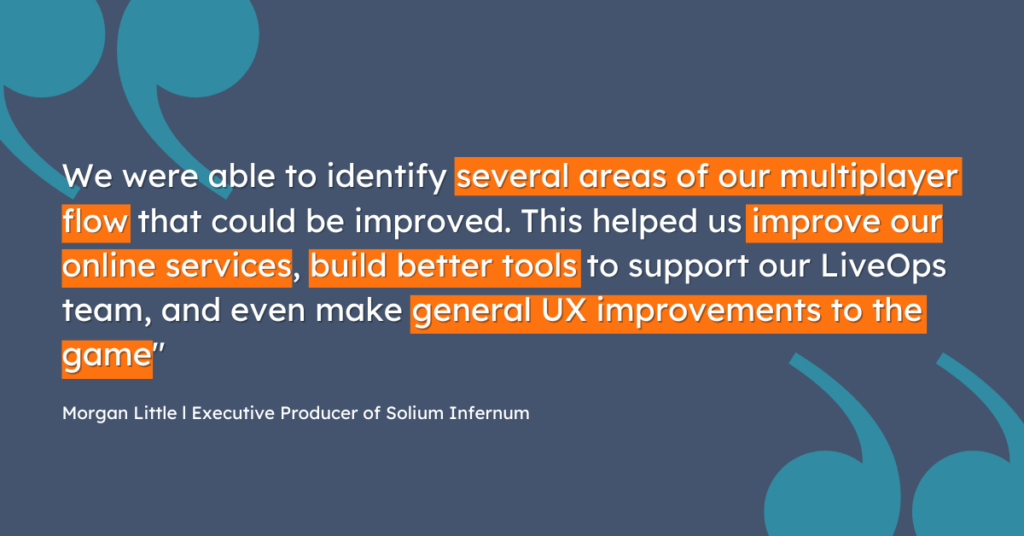
We asked Morgan about the results the studio achieved by working with Antidote:
“Through the stress test with Antidote, we were able to identify several areas of our multiplayer flow that could be improved. This helped us improve our online services, build better tools to support our LiveOps team, and even make general UX improvements to the game.”
Moreover, they expanded by saying:
“Because we got real-time responses from the Antidote team and testers, we could spot potential issues and begin hypothesizing how to resolve them, as the test was taking place.”
This allowed the studio to adopt a proactive approach to rectifying potential problems that could arise and disrupt its players’ gameplay in the future.
Furthermore, Morgan highlighted one of the changes implemented based on the feedback collected from the study:
“We found that turns in our game could take longer to process than expected and that this led to some player confusion and frustration.
From this, we worked to improve the way the game and server handled turn processing and create a robust fallback to catch games should they fall through the cracks.”
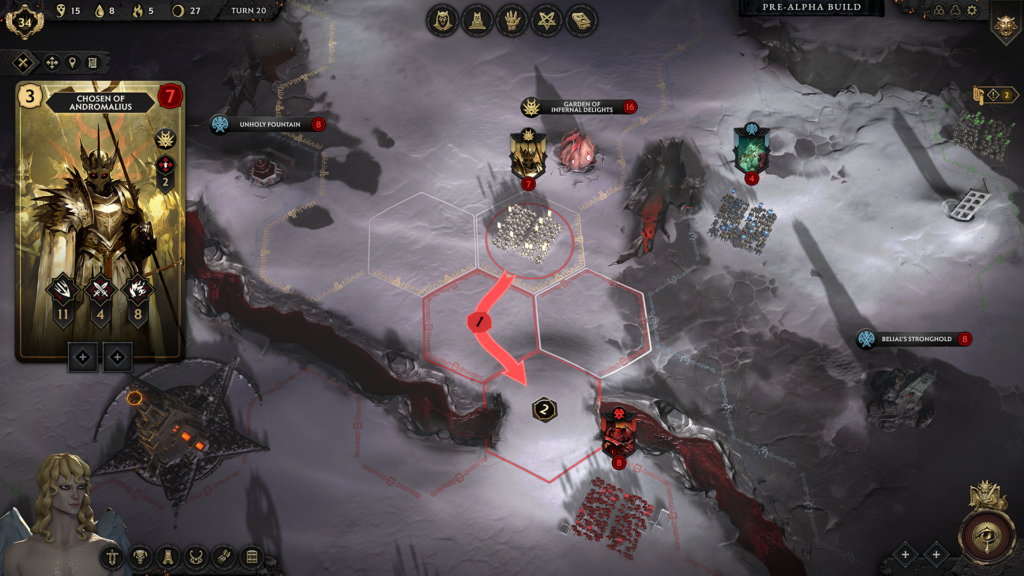
Besides the in-game improvements, we asked about the studio’s experience collaborating with Antidote:
“Antidote was so quick to respond! We had the test up and running before we knew it, which was perfect for our test case. The test also thoroughly benefitted the final game product – the speed came at no loss of quality.”
The entire process took just four days, from the initial request to launching the stress test, which was crucial in helping the studio stay on schedule.
Additionally, Morgan commented on the working with Antidote’s team:
“The Antidote team were wonderful to work with, very proactive and thorough, and quick to flag when they needed help from us to support those testing the game.”
The collaboration with Antidote was instrumental in fine-tuning Solium Infernum’s multiplayer experience.
The immediate feedback loop and hands-on support allowed League of Geeks to swiftly address and resolve issues that could have impacted players at launch.
This partnership bolstered the game’s technical robustness and highlighted the importance of real-world testing environments.
Why League of Geeks Recommends Antidote
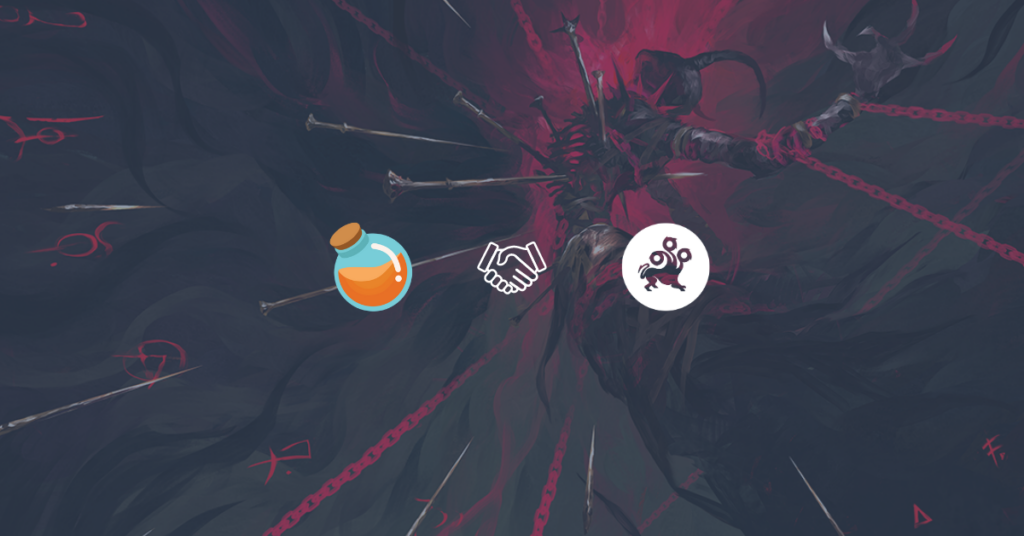
We asked Morgan whether they would recommend other game studios to collaborate with Antidote:
“I would definitely recommend Antidote for stress testing purposes! They are friendly, prompt, and thorough – exactly what you need from these test scenarios.”
By partnering with Antidote, League of Geeks was able to:
- Complete a stress test within days of the initial request
- Reach the exact number of players needed for the test
- Understand if their game would sustain natural player behavior at scale
- Forget about the complex logistics of player recruitment, coordination and real-time feedback gathering – due to a specialized platform, a community of dedicated players and an experienced UX team.
For studios looking for assistance with upcoming playtesting projects, working with Antidote unlocks access to our player community and experienced UX team that will handle the entire research project for you.
Interested in learning more? Contact us to discuss your requirements.
